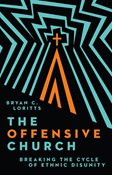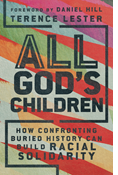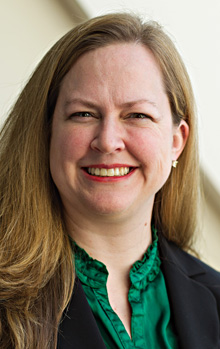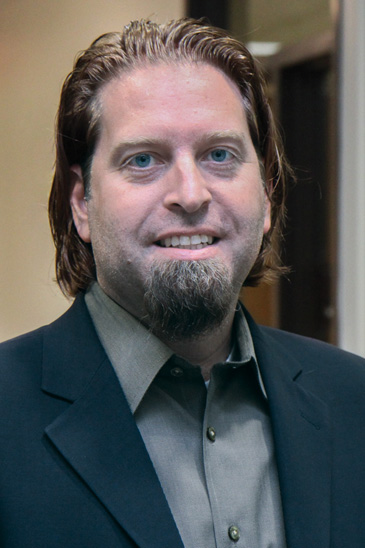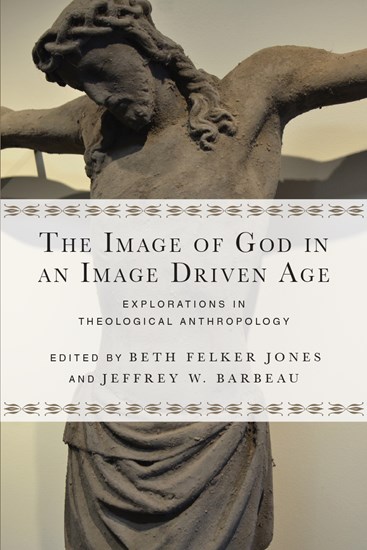
|
The Image of God in an Image Driven Age
ebook
|
- Length: 272 pages
- Dimensions: 0 × 0 in
- Published: March 18, 2016
- Imprint: IVP Academic
- Item Code: 9960
- ISBN: 9780830899609
-
Other Retailers:
Amazon*
*affiliate partner
-
paperback
Whether on the printed page, the television screen or the digital app, we live in a world saturated with images.
Some images help shape our understanding of ourselves and the world around us in positive ways, while others lead us astray and distort our relationships. Christians confess that human beings have been created in the image of God, yet we chose to rebel against that God and so became unfaithful bearers of God's image. The good news of the gospel is that Jesus, who is the image of God, restores the divine image in us, partially now and fully in the day to come.
The essays collected in The Image of God in an Image Driven Age explore the intersection of theology and culture. With topics ranging across biblical exegesis, the art gallery, Cormac McCarthy, racism, sexuality and theosis, the contributors to this volume offer a unified vision—ecumenical in nature and catholic in spirit—of what it means to be truly human and created in the divine image in the world today.
This collection from the 2015 Wheaton Theology Conference includes contributions by Daniela C. Augustine, Craig L. Blomberg, William A. Dyrness, Timothy R. Gaines and Shawna Songer Gaines, Phillip Jenkins, Beth Felker Jones, Christina Bieber Lake, Catherine McDowell, Ian A. McFarland, Matthew J. Milliner, Soong-Chan Rah and Janet Soskice, as well as original poems by Jill Peláez Baumgaertner and Brett Foster.
"Poetry, literature, visual art and deep theological thinking collide here! What better way to think about what it means to be made in God's image, and what it means to bear God's image, to a world beset with so many false images? Students, pastors and theologians alike will find here a meaty conversation and, better yet, an invitation to bear God's image well."
"This is a fecund collection of essays on theological anthropology. In it one can find treatments of the image of God from biblical, systematic and constructive theology, but one can also find essays that reflect on the imaging of God in the arts: in poetry and in literary criticism. Here too there is reflection on our witness to the divine image in a culture of commodification and a world where the color of one's skin has displaced the divine image in which we are all created. These explorations of the doctrine of the image of God offer readers a rich and satisfying smorgasbord of essays and art that repays careful reading and reflection."
"Bringing together art, literature and theology, these essays are a prism of Christian reflection on what is perhaps the most urgent question of our time: What does it mean to be a human being created in the image of God?"
"The essays collected in this volume explore the intersection of theology and culture. With topics ranging across biblical exegesis, the art gallery, Cormac McCarthy, racism, sexuality, and theosis, the contributors offer a unified vision of what it means to be truly human and created in the divine image in the world today."
CONTENTS
Acknowledgments
Introduction
Beth Felker Jones and Jeffrey W. Barbeau
Zola, Imago Dei, on Her First Birthday
Jill Peláez Baumgaertner
Whiteout
Brett Foster
Part I: Canon
1. ‘In the Image of God He Created Them’: How Genesis 1:26-27 Defines the Divine-Human Relationship and Why It Matters
Catherine McDowell
2. Poised Between Life and Death: The Imago Dei After Eden
William A. Dyrness
3. ‘True Righteousness and Holiness’: The Image of God in the New Testament
Craig L. Blomberg
Part II: Culture
4. Uncovering Christ: Sexuality in the Image of the Invisible God
Timothy R. Gaines and Shawna Songer Gaines
5. Culture Breaking: In Praise of Iconoclasm
Matthew J. Milliner
6. Carrying the Fire, Bearing the Image: Theological Reflections on Cormac McCarthy?s The Road
Christina Bieber Lake
Part III: Vision
7. What Does It Mean to See Someone? Icons and Identity
Ian A. McFarland
8. Image, Spirit and Theosis: Imaging God in an Image-Distorting World
Daniela C. Augustine
9. The God of Creative Address: Creation, Christology and Ethics
Janet Soskice
Part IV: Witness
10. The Sin of Racism: Racialization of the Image of God
Soong-Chan Rah
11. Witnessing in Freedom: Resisting Commodification of the Image
Beth Felker Jones
12. The Storm of Images: The Image of God in Global Faith
Philip Jenkins
Epilogue
Jeffrey W. Barbeau and Beth Felker Jones
List of Contributors
Name and Subject Index
Scripture Index










